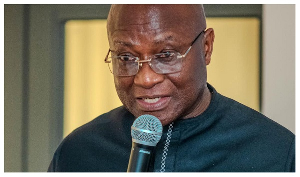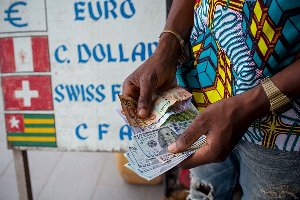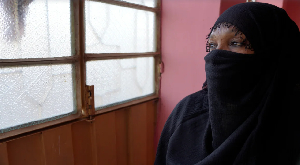The Law is said to be an ass and it would go in the direction in which it is kicked. There are as many interpretations of the law as there are judges and lawyers. One is often bewildered when a case determined with sound reasoning in a lower court is completely reversed on appeal. In some instances the same case can be reversed multiple times as it climbs up the appellate ladder in our court system. In all cases too these decisions are supported with legal justification citing authorities and precedents in similar cases determined previously. This often leaves the lay person confused and distrustful of our judicial process. Yet as a cornerstone of order in human society we must not only protect the judiciary but also accord it the due respect. There is growing concern about the lack of political neutrality in the Ghanaian judiciary. Recently many political parties and civil society groups have complained about the packing of the Supreme Court (SC) with pro-government judges. There is a perception that many of the new judges appointed have a pro-NPP inclination and have been appointed onto the SC to do the bidding of government. The quite apparent support of the current Chief Justice (CJ) for the political establishment has not helped matters. Only recently a judge complained openly about the conduct of the Chief Justice in interfering in cases pending before them.
A recent poll on Ghanaweb asked the opinion of internet users what they thought about the Ghanaian Judiciary. A whopping 58% determined that the judiciary is biased politically. Another 35.6% thought it was neutral and 6.4% expressed no opinion. There is clearly a public perception that the judiciary as it exists in Ghana today is not politically neutral. It is difficult otherwise to understand how the SC will cut its own nose to spite its face as in the recent decision on Wulensi. The Supreme Court (SC) in this case declined jurisdiction in an election petition because in the section dealing with election petitions in the 1992 constitution the SC is not expressly mentioned as an appellate body for such petitions. All this in spite of the fact that the same constitution recognizes the SC as the final and ultimate arbiter in all legal disputes. It is also instructive to note that the same SC had accepted jurisdiction in election petitions in previous years as in the famous Amoo and Addotey case. Denying litigants in election petitions the opportunity to seek justice in the final and ultimate court of the land is certainly a truncation of their rights. There was off course one solitary and dissenting voice. Justice Sophia Akuffo courageously dissented with the majority view in both the original decision and the review.
The case questioning the constitutionality of the fast track courts focused great attention on the judiciary. The subsequent speedy appointments of new judges to join the SC to hear the review led to a 360-degree reversal of the original judgement. Sitting in court during the review judgement, I was astounded by the strength of the words used by some judges in condemning the ruling of their fellow judges in the original case. For me it sent a signal that all was not well with our highest court of the land. Do justices feel in competition with each other to defend fixed political positions?
A great burden lay on the shoulders of Justice Afreh on Friday 21st February 2003. On this day he was supposed to pronounce judgement in the famous Quality Grain case. Quality Grain has been a very sensitive case and featured prominently in the last election. The then minority NPP had cited it as one of their principal accusations of corruption against the previous administration. Immediately upon assuming the reins of power therefore the new government proceeded to arraign officials of the NDC Government associated with the project before the fast track court. It was with consternation that most people listened to the learned judge when he entered his courtroom on that Friday. He described the case as unusual and complicated. He said it was not similar to the Mallam Issa case where a straight charge of stealing had been leveled against the accused. He said in this particular case the accused were not charged with stealing or corruption, but rather willfully causing financial loss to the state. It was clear that the learned judge on the day of judgement was in clear doubt about culpability of the accused persons as charged. As a lay man I have always thought that where there is doubt in a criminal case, it is resolved in favour of the accused person. I am certainly not an expert in law, but my humble understanding is that if after the address of court by both the prosecution and the defense, the judge on the day fixed for judgement has doubt about the culpability of the accused, he should have gone ahead to resolve it in favour of the accused persons.
In the meantime a case filed at the SC challenging the constitutionality of the charge of ?willfully causing financial loss to the state? has suddenly been listed. This case had lain dormant before the SC for many months. There were several allegations made that the CJ was dragging his feet and was reluctant to list the case for hearing. All of a sudden the case has been listed for today Tuesday 4th of March. Now that the case has been listed, the question is whether it was listed to help clear Justice Afreh?s doubts.
Administration of justice plays a key role in the democratic process. Whether it is in interpretation of the constitution or civil/criminal jurisdiction, speedy and impartial decisions help to build confidence of the population in the democratic institutions.
Empanelling the SC has become critical in determining which way a case would be decided. The CJ reserves the right to determine which SC justices sits on any particular case. By deduction it is therefore possible to conclude that the CJ can influence the outcome of cases by the justices he selects to sit on them. Is this why some SC justices have virtually become redundant and are rarely selected to sit.
In this 21st Century can?t we have a more transparent way of determining which justices sit on any case that comes before the courts? This should be a system based on random selection where every judge has an equal chance of being selected to sit. Several lawyer friend have told me that just by knowing which justices are empanelled to sit on a particular case in the courts, they can predict in which way the case would be determined. Justice must not be that predictable.
I hope to God this is not true and that they are proved wrong! Yes the law is an ass, but we must kick it in only one direction. The direction of justice and truth. While the judiciary is a human institution and therefore fallible, all who work in dispensing justice to the citizenry must as far as possible strive for strict neutrality and impartiality.



















